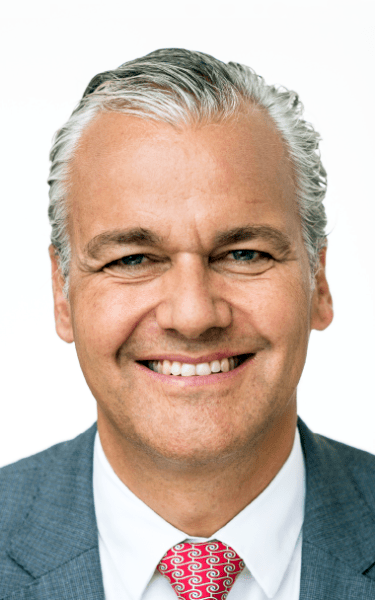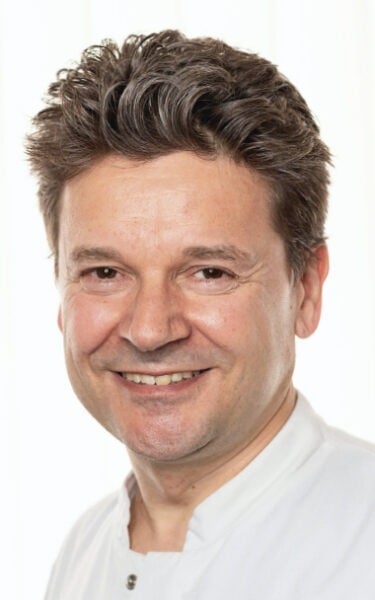Essentials of embolization: Liquid embolization from A to Z, Strasbourg/FR, November 21-22, 2024
In recent years, liquid embolics have increased in popularity among interventional radiologists, as these agents boast both high embolic efficiency and good clinical results. However, the learning curve is steep, as liquid management and the technical aspects are different and more complex than using conventional coils or particles, and training with these agents should take place in a controlled environment.
Liquid embolics can generally be classified into three main groups: cyanoacrylate (glue), non-adhesive DMSO-based embolics and sclerosants foams. The indications for use, chemical properties, clinical advantages and risks of these can be vastly different from those for sclerosants and cyanoacrylates, and knowing the variances is essential for a well-trained IR.
Training with liquid embolics in real models allows IRs to gain the expertise needed for the management of these products. Due to the similarity between pig and human anatomy, pigs will be used in the in-vivo workshops in order to learn how to deal with the injection of glue and EVOH into livers and kidneys. In the ex-vivo workshops, participants will practice on models to learn about the right way to use sclerosants, cyanoacrylate glue, and EVOH. Additional parallel stations will provide opportunities for participants to learn about the preparation and mixing of glue and EVOH. Organised by Christoph Binkert and lead by a team of expert faculty members, this course will ensure that experienced IRs are up to date on this important and expanding facet of embolization.
Who should attend?
This course is designed for interventional radiologists who have completed their radiology training and are interested in fine-tuning their practical skills and learning more about the current treatment options for routine as well as technically challenging cases.
Preliminary programme
Thursday, November 21, 2024
08:30-09:00 Registration
09:00-09:10 Welcome and faculty introduction
09:10-10:10 Technical lectures
Technical aspects of ethylene vinyl alcohol
Technical aspects of cyanoacrylate glue
Tips and tricks in advance glueing
Technical aspects of sclerosants
Discussion
10:10-10:30 Coffee break
10:30-10:35 Introduction to workshops
10:35-10:45 Preparation for workshops
10:45-13:45 Hands-on device training
Practical aspects of cyanoacrylate glue in a model
Practical aspects of EVOH in a model
Glue preparation and injection in a model
Parallel: animal lab training
In-vivo training of glue injection
In-vivo training of EVOH injection
Sclerosant injection in animal liver and sclerotherapy foam
13:45-14:45 Lunch Break
14:45-17:45 Hands-on device training
Practical aspects of cyanoacrylate glue in a model
Practical aspects of EVOH in a model
Glue preparation and injection in a model
Parallel: animal lab training
In-vivo training of glue injection
In-vivo training of EVOH injection
Sclerosant injection in animal liver and sclerotherapy foam
Friday, November 22, 2024
08:45-10:15 Case discussions: When things go wrong
10:15-10:45 Coffee break
10:45-11:00 CBCT and embolization guidance software
11:00-12:30 Case discussions: When things go right
12:30-13:00 Final assessment and quiz
Local hosts


Preliminary faculty
E. Boatta (Strasbourg/FR)
Y. Chun (London/UK)
B. Meyer (Hannover/DE)
Venue
IHU – Institute of Image-Guided Surgery
1 place de l’Hôpital
Strasbourg 67091
France
Registration
Please note that this course is open only to interventional radiologists who have completed their radiology training.
The registration fees are as follows:
| Early Fee (until September 26, 2024) | Late Fee (as of September 27, 2024) |
|
|---|---|---|
| Course registration | €990 | €1090 |
| Course registration (CIRSE Member*) | €790 | €890 |
*Reduced registration fees are only available for members of CIRSE in good standing.
These fees include
- Course attendance
- Teaching material for the course
- Lunch on the first day
- Coffee breaks
General information
- Please note that this course is limited to 30 participants and registrations will be accepted on a first-come, first-served basis.
- To attend the ESIR courses as a member, CIRSE membership fee for the year of the course must be settled.
- Please note that your registration becomes valid only after receipt of payment and after confirmation by the CIRSE Central Office.
- When making your flight bookings, please make sure that you will be able to stay for the entire course.
Invoices will be issued by the CIRSE Foundation, Neutorgasse 9, 1010 Vienna, Austria.
CIRSE Foundation
Neutorgasse 9
1010 Vienna
Austria
Phone: 0043 1 904 2003
Email: [email protected]
Cancellation of course registration
The CIRSE Foundation offers all participants the possibility of purchasing insurance with our partner “Europäische Reiseversicherung” via this link. Thus, the CIRSE Foundation itself will not refund any amount after a cancellation of registration. All requests have to be issued to the “Europäische Reiseversicherung” directly. Refunds will be given within the terms and conditions of the “Europäische Reiseversicherung”. Name changes will be handled as a cancellation and new registration.
Accommodation
Below is a list of recommended hotels within the vicinity of the course venue. To proceed with booking your rooms for the course duration, please get in touch with the hotels directly. Accommodation is not included in the registration fee and course delegates shall bear all costs in this context themselves.
Upon booking your room, please inform the hotel that you are attending an event at IHU (Institute of Image-Guided Surgery) to secure special booking rates.
Hôtel du Dragon
3*, 7 min. walk from the venue
12, rue du Dragon
Phone: +33 3 88 35 79 80
E-mail: [email protected]
https://www.dragon.fr/en/
**Please double check that you have selected the Strasbourg hotel before booking – a hotel with the same name and street name exists in Paris.
Hôtel Au Cerf d’Or
3*, 8 min. walk from the venue
6 Place de l’Hôpital
Phone: +33 3 88 36 20 05
E-mail: [email protected]
https://www.cerf-dor-strasbourg.fr/
Holiday Inn Express
3*, 15 min. walk from the venue
Rue de la Corderie
Phone: +33 3 88 10 99 99
E-mail: [email protected]
http://hiexstrasbourg.com/en/holiday-inn-express-strasbourg-en/
Les Haras
4*, 6 min. walk from the venue
23 Rue des Glacières
Phone: +33 3 90 20 50 00
E-mail: [email protected]
https://les-haras.fr/?lng=en
Cour du Corbeau
4*, 12 min. walk from the venue
7 Rue des Couples
Phone: +33 3 90 00 26 26
E-mail: [email protected]
https://www.cour-corbeau.com/en/
Régent Petite France
4*, 12 min. walk from the venue
5 rue des Moulins
Phone: +33 3 88 76 43 43
E-mail: [email protected]
https://www.regent-petite-france.com/?lang=en
